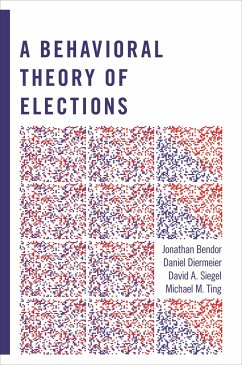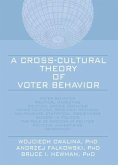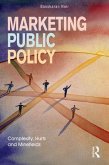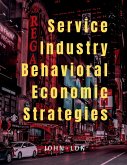"Traditional approaches in political science and economics have failed to explain why people vote or take other actions that apparently have no basis in self-interest. In this pathbreaking book, the authors provide the analytical foundations for a new behavioral theory of political participation."--Stephen Ansolabehere, Harvard University "The authors apply the insights of psychology and bounded rationality to construct a new foundation for our understanding of how voters and politicians behave in complex strategic environments. Bold and highly original, this fascinating book is essential reading for anyone with a serious interest in elections and will fundamentally reshape how we think about political behavior."--Alan Gerber, Yale University "Given the complexity of social processes, many social scientists question the assumption of rationality underlying game theoretic models of elections. The natural solution, to assume bounded rationality, has been stifled by the abundance of possible alternative models. This wonderful book examines a class of models grounded in aspiration-based learning and shows how they produce deep, explanatory insights into voter choice, turnout, party competition, and electoral outcomes. A tour de force!" --Scott E. Page, author of The Difference and Diversity and Complexity "Distinctive in its use of aspiration-based adjustment models as a replacement for the traditional rational choice approaches, this book is clearly the first to develop a coherent model of elections based on reinforcement learning. Clearly written and effectively presented, it will advance the debate on the use of both behavioral and rational choice models in political science."--Mark Fey, University of Rochester
Hinweis: Dieser Artikel kann nur an eine deutsche Lieferadresse ausgeliefert werden.
Hinweis: Dieser Artikel kann nur an eine deutsche Lieferadresse ausgeliefert werden.








